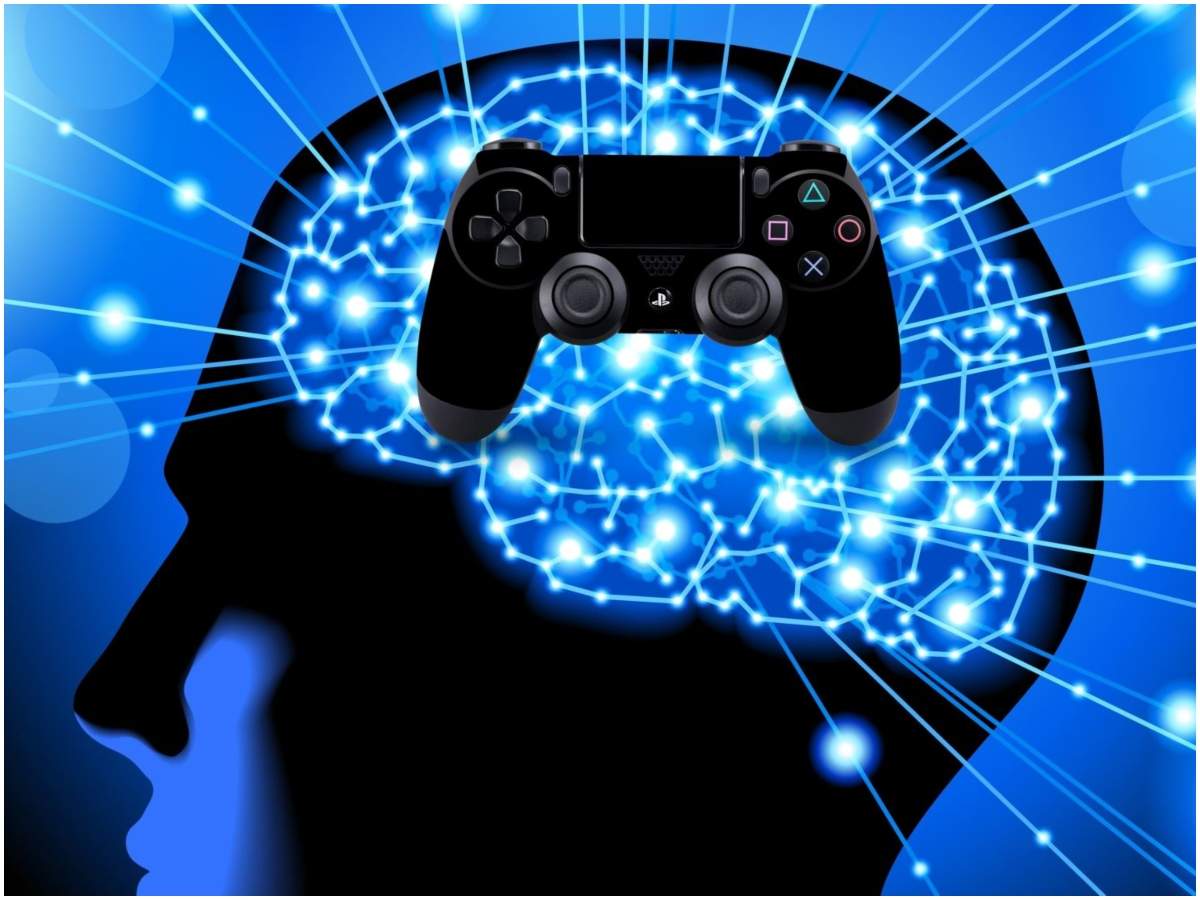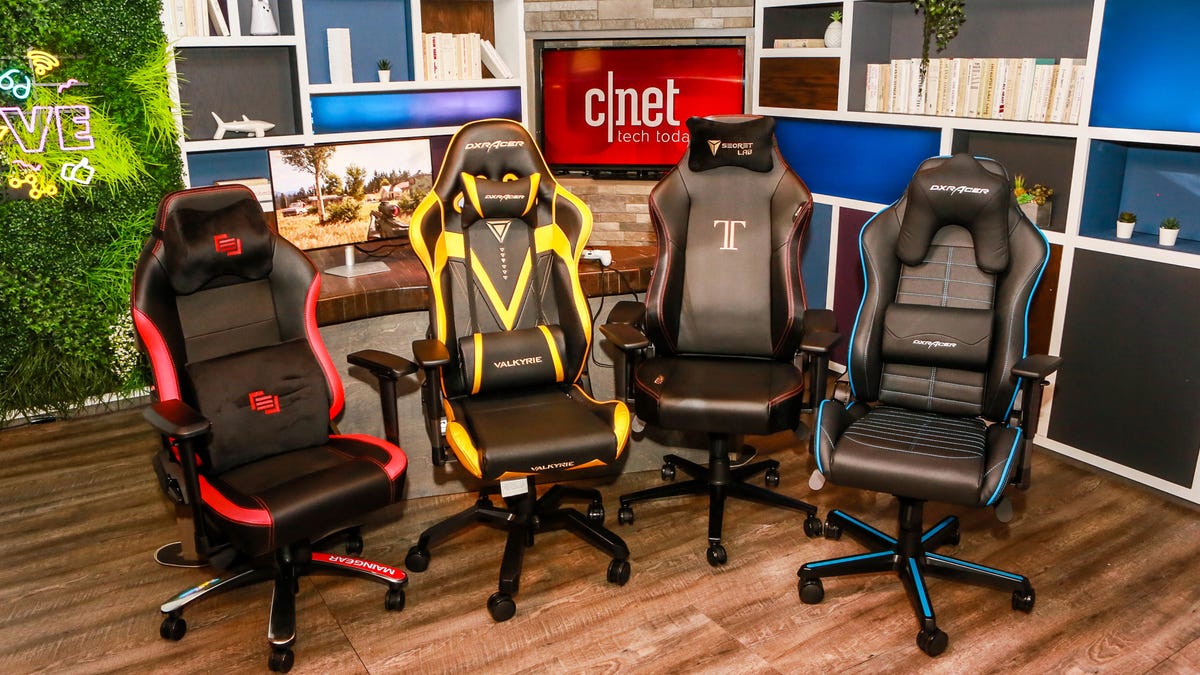Things To Know About Gaming
Here are some things to know about gaming:
1:Gaming can be a fun and rewarding hobby, but it's important to balance it with other activities and responsibilities.
2:There are many different types of games, including action, adventure, sports, racing, puzzle, and role-playing games, among others.
3:Gaming can be a social activity, with many games offering online multiplayer modes that allow players to connect and play with others worldwide.
4:Gaming can have positive effects on cognitive function, including improved problem-solving skills, hand-eye coordination, and spatial reasoning.
5:Gaming can also have negative effects, such as addiction, eye strain, and poor posture. It's important to take breaks and practice good ergonomics while gaming.
6:There are many gaming platforms to choose from, including consoles (like the PlayStation, Xbox, and Nintendo Switch), PC, and mobile devices.
7:Gaming can be a lucrative industry, with professional gamers and esports tournaments offering significant prize money.
8:Many games have age ratings, and it's important to choose games that are appropriate for your age and maturity level.
9:The gaming industry is constantly evolving, with new technologies and innovations (like virtual reality and cloud gaming) changing the way we play games.
10:Gaming can be a great way to relax and unwind, but it's important to maintain a healthy balance and not let it interfere with other aspects of your life.
When Gaming Started:
The history of gaming can be traced back to the 1940s and 1950s when computer scientists developed basic games and simulations as part of their research. The first electronic game, a simple tennis game, was created in 1958 by physicist William Higinbotham.
The 1960s and 1970s saw the development of several popular games such as Spacewar! and Pong, which were played on large mainframe computers and in arcades. In the 1980s, personal computers became more widely available and gaming started to become a popular pastime.
The 1990s saw the introduction of more advanced consoles, such as the Nintendo Entertainment System and the Sega Genesis, which brought gaming to a wider audience. The 2000s saw the rise of online and multiplayer gaming and the development of popular franchises such as Halo and World of Warcraft.
Today, gaming is a massive industry, with an estimated 2.8 billion gamers worldwide and a market value of over $175 billion. Gaming has come a long way since its early days and continues to evolve with new technologies such as virtual reality, augmented reality, and cloud gaming.
When Gaming becomes an addiction:
Gaming addiction, also known as video game addiction, is a type of behavioral addiction that involves the excessive and compulsive playing of video games to the point where it negatively impacts the individual's daily life, relationships, and responsibilities.
Some signs of gaming addiction include:
Preoccupation with gaming: Constantly thinking about gaming even when not playing, and planning the next gaming session.
Loss of control: Inability to limit or stop gaming, and neglecting responsibilities like work, school, or social relationships.
Withdrawal symptoms: Experiencing irritability, anxiety, or depression when unable to play games.
Tolerance: Needing to play games for longer periods or increasing the intensity of games to feel the same level of enjoyment.
Negative impact on life: Gaming addiction can lead to job loss, academic failure, financial problems, social isolation, and physical health issues.
If you or someone you know is experiencing signs of gaming addiction, seeking professional help from a mental health professional can be beneficial in managing and treating this condition. Additionally, setting limits on gaming time, finding alternative hobbies, and increasing social connections can also help in reducing the risks of gaming addiction.
When Gaming feels like a chore:
Gaming is generally considered a fun and enjoyable activity for many people, but there are times when it can start to feel like a chore. This can happen for several reasons, including:
Playing the same game repeatedly: If you've been playing the same game for a long time, it can start to feel repetitive and lose its appeal. This can make it feel more like a chore than a fun activity.
Pressure to perform: If you feel pressure to perform well in a game, such as in a competitive online game, it can start to feel like work. This can lead to stress and anxiety, making the game feel less enjoyable.
Monotonous tasks: Some games require players to perform repetitive tasks, such as grinding for experience points or collecting resources. If these tasks become too monotonous, the game can start to feel like a chore.
Burnout: Playing games for extended periods can lead to burnout, where you start to lose interest in the game and feel fatigued. This can make it feel like a chore to continue playing.
To avoid feeling like gaming is a chore, it's important to take breaks, try new games or genres, and set reasonable goals for yourself. It's also important to remember that gaming is meant to be fun and enjoyable, so if a particular game or activity is no longer enjoyable, it's okay to take a break or stop playing altogether.
When Gaming who has the better odds:
The odds in gaming can vary widely depending on the game, the rules, and the strategies used by the players. In games of chance, such as slots, roulette, or lottery, the odds are determined by mathematical probabilities and are usually in favor of the house. In other words, the odds of winning are always lower than the odds of losing.
In games of skill, such as poker, blackjack, or chess, the odds are influenced by the player's strategy and decision-making abilities. Skilled players can improve their odds of winning by making informed decisions, managing their resources effectively, and utilizing advanced strategies.
In team-based games, such as MOBAs (multiplayer online battle arenas) or first-person shooters, the odds can also be influenced by the other player's skill levels. A team with highly skilled players has a better chance of winning than a team with less skilled players.
Ultimately, the odds in gaming are influenced by many factors, including the game type, the rules, the player's skill level, and even luck. It's important to remember that while gaming can be fun and entertaining, it's also important to gamble responsibly and never risk more than you can afford to lose.
When Gaming Laptop:
A gaming laptop is a type of laptop computer that is designed to handle high-performance gaming applications. Gaming laptops usually have more powerful processors, dedicated graphics cards, and higher amounts of RAM than typical laptops. These features allow them to handle the demanding graphics and processing requirements of modern games.
When choosing a gaming laptop, there are several factors to consider, including:
Processor: A high-performance processor is essential for running games smoothly. Intel Core i5 and i7, as well as AMD Ryzen processors, are popular choices for gaming laptops.
Graphics card: A dedicated graphics card is necessary for running modern games. Nvidia and AMD are two popular brands of graphics cards used in gaming laptops.
RAM: The more RAM a laptop has, the better it can handle multiple applications and processes at the same time. Most gaming laptops have at least 8GB of RAM, with some models featuring 16GB or more.
Storage: Games can take up a lot of storage space, so a larger hard drive or solid-state drive (SSD) is recommended.
Display: A high-resolution display with a fast refresh rate can make games look smoother and more visually appealing. A 1080p or 1440p display with a refresh rate of at least 120Hz is recommended for gaming laptops.
Cooling: Gaming laptops can generate a lot of heat, so a good cooling system is important to prevent overheating and maintain performance.
Gaming laptops can vary widely in price, with some models costing several thousand dollars. It's important to consider your budget, as well as your gaming needs when choosing a gaming laptop.
When Gaming Chair:
A gaming chair is a type of chair designed for gamers that provides comfort, support, and an ergonomic design that allows the user to sit for extended periods of time without experiencing discomfort. Gaming chairs typically have features such as adjustable armrests, lumbar and headrest pillows, and a high backrest that supports the entire spine.
When choosing a gaming chair, there are several factors to consider, including:
Comfort: A comfortable gaming chair should have adequate padding, a supportive backrest, and adjustable features that allow the user to customize their sitting position.
Ergonomics: An ergonomic gaming chair should be designed to support the natural curve of the spine and reduce stress on the neck, shoulders, and lower back.
Adjustability: A good gaming chair should have adjustable features, such as height, armrests, and backrest tilt, that allow the user to customize their sitting position for maximum comfort.
Material: The material of a gaming chair can impact its comfort and durability. Popular materials include leather, mesh, and fabric.
Style: Gaming chairs come in a variety of styles, from racing-style chairs to more traditional designs. The style of a gaming chair can impact its comfort and aesthetics.
Price: Gaming chairs can vary widely in price, with some models costing several hundred dollars. It's important to consider your budget when choosing a gaming chair.
A good gaming chair can provide long-term comfort and support during extended gaming sessions, as well as reduce the risk of developing back or neck pain. When choosing a gaming chair, it's important to consider your personal needs and preferences, as well as the features and design of the chair.
When Game stands tall:
"When a game stands tall" is a phrase often used to describe a game that is particularly impressive or memorable. A game that "stands tall" is one that is considered exceptional, either because of its gameplay, graphics, story, or a combination of these factors.
Some examples of games that are often considered to "stand tall" include:
The Legend of Zelda: Breath of the Wild - a critically acclaimed open-world game that revolutionized the Zelda series.
The Last of Us - is a highly praised game with a compelling story and memorable characters.
Half-Life 2 - a classic first-person shooter game that set a new standard for immersive storytelling in games.
Super Mario 64 - a groundbreaking 3D platformer that introduced a new level of exploration and freedom to the Mario franchise.
Red Dead Redemption 2 - an expansive open-world game with an engaging story and stunning visuals.
When a game "stands tall," it often receives high critical acclaim, as well as praise from players and the gaming community as a whole. These games often leave a lasting impact and influence on the gaming industry, setting new standards and expectations for future games to come.




Comments
Post a Comment